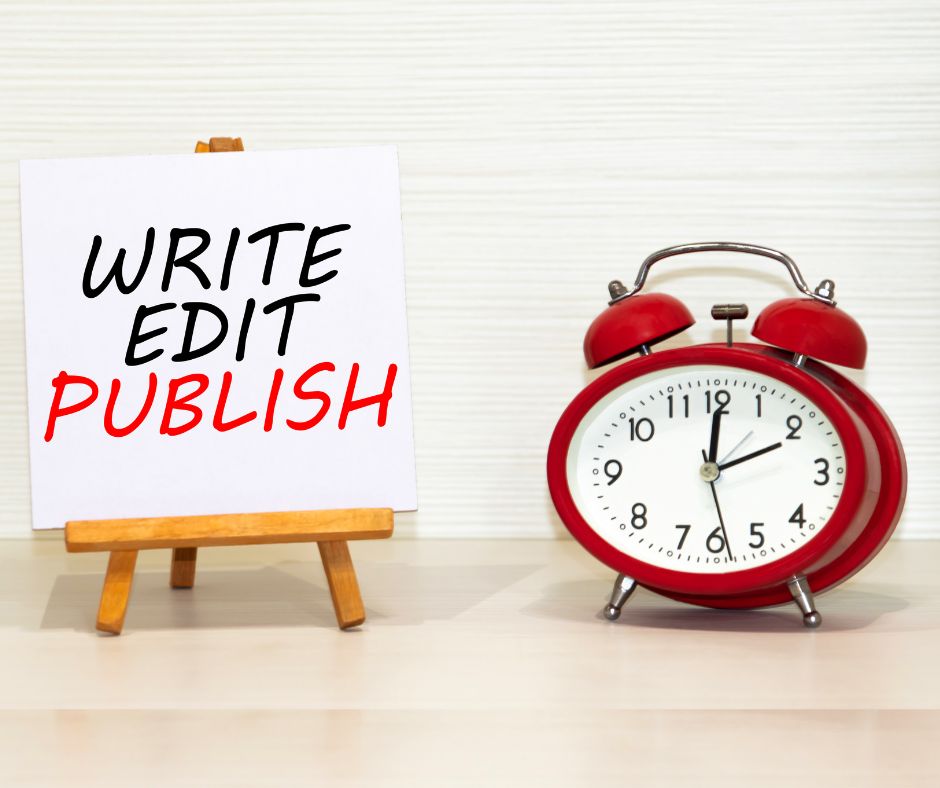Romance Author Guide to Pitching Agents in Person

If you sat across from a literary agent or publisher, could you tell them about your book in a concise, captivating way in only 5 minutes? Wowing an agent with your book concept in only 5-10 minutes can be nerve-racking, which is why having a prepared pitch can be helpful.
What is a pitch?
A pitch is a concise and captivating summary of your book delivered in a few minutes. The pitch typically includes key elements of your book, such as the genre protagonist, central conflict, stakes, genre, and a hook that grabs the listener’s attention.
The goal of the pitch is to create interest and curiosity in your book to entice the agent to want to learn more and potentially explore further opportunities for representation.
Why should you have a prepared pitch?
The obvious reason to have a prepared pitch is to use it at a pitch session offered by many writer conferences. Especially if you’re prone to nervousness, having a crafted and well-practiced pitch can make the session go smoothly.
But other places you can use your pitch are at networking events with people in the publishing industry and at book events talking to readers.
Elements of Your Pitch
A pitch is different from a blurb or synopsis, although similar to those, you have to whittle your book’s entire story down to a few lines. You have very little time (30 to 50 words or 30-60 seconds) to deliver all the elements to intrigue an agent, so you need to make each word count and only deliver the most important elements of your book. Think short and snappy.
Note, you usually have several minutes to pitch an agent, but you have a moment to hook them, and you need time for the agent to ask questions.
Here are the elements of a good pitch.
Hook: Capture attention with a captivating hook. It could be an intriguing twist, a shocking revelation, a unique concept, or a tantalizing mystery that sets your story apart.
Protagonist: Introduce the main character or characters of your story including their goal.
Setting: Where and when does your story occur?
Central Conflict: What is the core conflict or challenge that the protagonist faces?
Stakes: What’s at stake if the protagonist fails or succeeds?
Genre and Word Count: State the genre and subgenre, and word count.
Crafting Your Pitch
Take the elements above and put together a 30-to-50-word, or a 30-60 second to a minute elevator pitch.
To create your pitch, you have a few structure options:
- Answer who, what, when, where, when, why, and how?
- Use your premise: character>goal>conflict.
- Use inciting event: character>action>stakes.
For example, here are pitches for Pride and Prejudice
- Who? Elizabeth Bennet, a spirited and outgoing woman
- What? Overcomes preconceptions and judgements
- Where? English countryside
- When? Regency period
- Why? Social norms dictate she is of marriage age, and without marriage, her family is at risk of losing their home, as women can’t inherit.
- How? Through her interactions with the proud Mr. Darcy.
Elizabeth Bennet, an intelligent and spirited young woman from Regency era England, crosses paths with the proud Mr. Darcy in a dance of wit, attraction, and misunderstandings. (27 words)
Or using the premise
Elizabeth Bennett, an intelligent and spirited young woman from Regency era England, navigates the societal expectations of her time when she crosses paths with the enigmatic and proud Mr. Darcy in a dance of wit, attraction, and misunderstandings. (38 words)
Or Inciting Event, character, action, stakes (catastrophe)
When two eligible bachelors come to Elizabeth Bennet’s small regency era English village, she must overcome her prejudice against the proud Mr. Darcy to secure happiness for herself and security for her family. (33 words)
You also need to include genre/subgenre and word count. You can put it up front or the end, but many agents prefer up front.
Pride and Prejudice is a 122,000-word historical regency-era romance in which Elizabeth Bennet, an intelligent and spirited young woman from England, crosses paths with the proud Mr. Darcy in a dance of wit, attraction, and misunderstandings. (36 words)
Or
Elizabeth Bennett, an intelligent and spirited young woman from regency era England, navigates the societal expectations of her time when she crosses paths with the enigmatic and proud Mr. Darcy in a dance of wit, attraction, and misunderstandings, in Pride and Prejudice, a 122,000 word historical romance novel. (47 words)
Tips for Your Pitch
Remember, your goal is to have an agent or publisher perk up and take an interest in your work. This pitch shouldn’t simply be a summary. Like a blurb, it should create interest and curiosity. Here’s a few tips on how to do that.
- Capture the mood and style of your book in your pitch. If your book is light or humorous, your pitch should be too. If it’s serious or dark, your pitch should match that.
- Practice your pitch until you have memorized it. This way, you won’t stumble or get events out of order.
- Be enthusiastic about the work, but don’t expect emotional appeals to sway an agent. Agents appreciate that you love your work, but they won’t use your enthusiasm of it as part of their consideration.
- At a pitch event, if you’re practicing, let the agent know. That way, they know to give you feedback on the pitch instead of requesting or rejecting the book.
- Avoid rambling, vague descriptions, and excessive jargon. Keep it focused and clear.
- Create a “one-sheet” that includes a summary of the book, genre, word count, author bio, and contact information. Some agents will accept this along with your pitch. I always looked at them, but never took them (I have too much paper to handle already).
Giving Your Pitch
It can be scary to pitch your book, especially putting yourself out there for possible rejection. Most agents I’ve met are aware of this and will be gentle. Some will give feedback. With that said, here are tips for giving your pitch to help it go smoothly.
-
- Research the agent(s): Pitch the ones that represent the type of book you write
- Tailor your pitch to the agent: Customize your pitch to align with what the agent is interested in. Mention if you’ve read books they’ve represented or if there’s a connection between your book and their client list.
- Know your market: Be prepared to briefly explain your book’s audience and where it fits in the market (e.g., “Fans of XYZ author would enjoy this book” or “It’s Pride and Prejudice meets Twilight”).
- Focus on the main conflict: Clearly convey what your characters want and what stands in their way. Agents need to know what drives your story forward.
- Highlight the stakes: Why should the reader care? What happens if your character doesn’t achieve their goal? Show what’s at risk.
- Let your personality shine: Your voice is a crucial part of your story. Infuse your pitch with the same tone and style that’s in your writing, whether it’s humor, suspense, or emotional depth.
- Try to relax: Make your pitch conversational and engaging rather than rehearsed or robotic.
- Anticipate follow-up questions: Be ready to answer questions about the plot, characters, or themes. Know your story well, and be prepared to elaborate if the agent wants more information.
- Know the jargon: If an agent asks you how many POVs are int he book, do you know what that means? If they ask you to send a query or synopsis, do you know what those are?
- Be open to feedback: Some agents might offer feedback or suggestions during the pitch. Listen attentively and show a willingness to consider their insights.
Questions You May Be Asked
If you’re at a pitch event, you have 3 to 10 minutes with an agent. After your pitch, the agent will probably ask questions, which could be anything from:
- Is the book finished?
- What other books are comparable to your book?
- What makes your book stand out from comparable books?
- Have you written or been published before?
- Are you working with or have you worked with an agent before?
- Why did you decide to write this book?
- Tell me about you.
- What are your writing goals?
- Do you have an author platform?
- What questions do you have for me?
Responses You Might Get
The hardest part of a pitch is knowing you might get a rejection to your face. Ouch!
Possible rejections…
But most agents are aware of how challenging an in-person pitch is and will be gentle with you if they’re not interested. Pay attention to what they tell you if they’re not interested. Responses such as “that’s not something I represent” tell you that you didn’t research the agent well enough or that you don’t understand your genre. If you’ve pitched a 120,000 word romcom as a first-time author, the agent might suggest you cut 40,000, then pitch again.
Sometimes the answer may be “it doesn’t fit with what I’m looking for now,” or “I don’t think I’m the best agent for this book.” While that can be an agent’s attempt at a gentle “no,” it could be true. Agents have their preferences. What might not be a “fit” for one agent could be a perfect fit for another.
Sometimes the answer will be no, but you’ll get feedback. Listen and learn! It could be the key to tweaking your book or your pitch for success in the future.
Positive responses…
If you’ve pitched well to the right agent, you may receive a request to submit. Pay attention to what they ask for and how they want you to deliver it. In many cases, they’ll ask for the synopsis and a few chapters to start with. Other times, they might ask for the full manuscript.
If they ask you to submit, they’ll give you a business card or other information with a URL on where to submit. In your query, remind the agent where you met them and what you’re submitting.
If they have guidelines on the page they refer you to, READ and FOLLOW them. You’ve done all this great work and gotten an agent interested in your book. Don’t mess it up by not following the submission guidelines.
When the Pitch is Over
When time is up, don’t dawdle. Thank the agent/publisher for their time. If the agent has requested you send something, make sure you have their card or information so you can follow up.






Responses